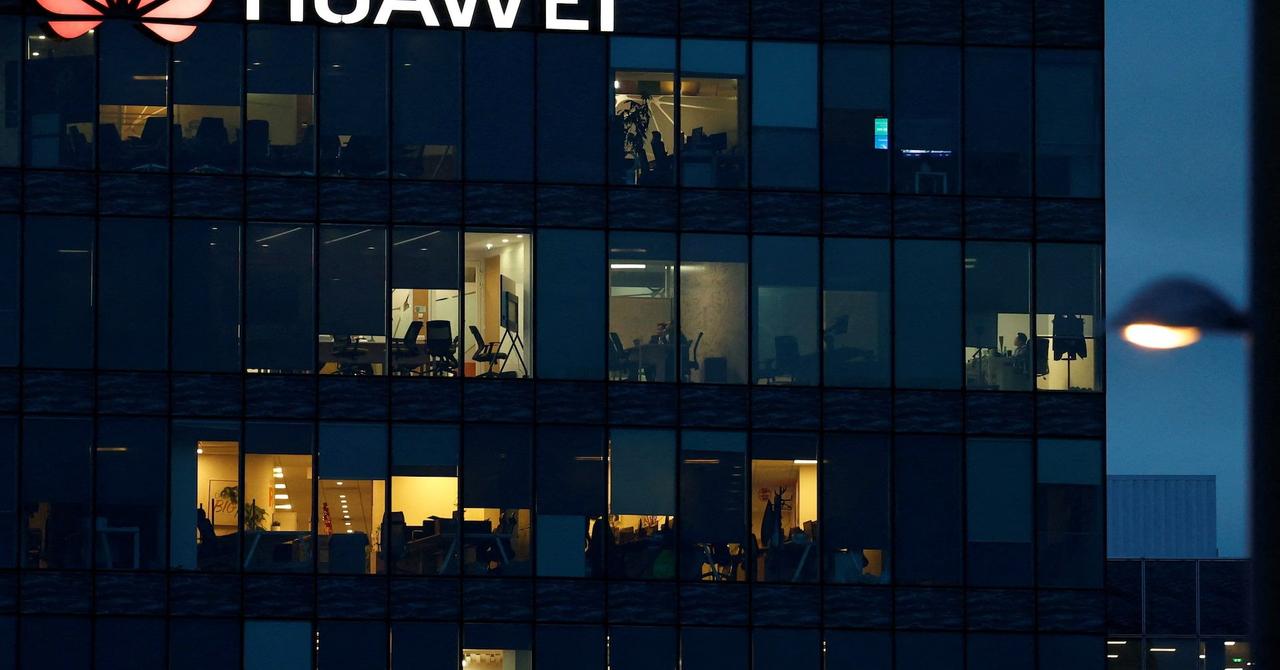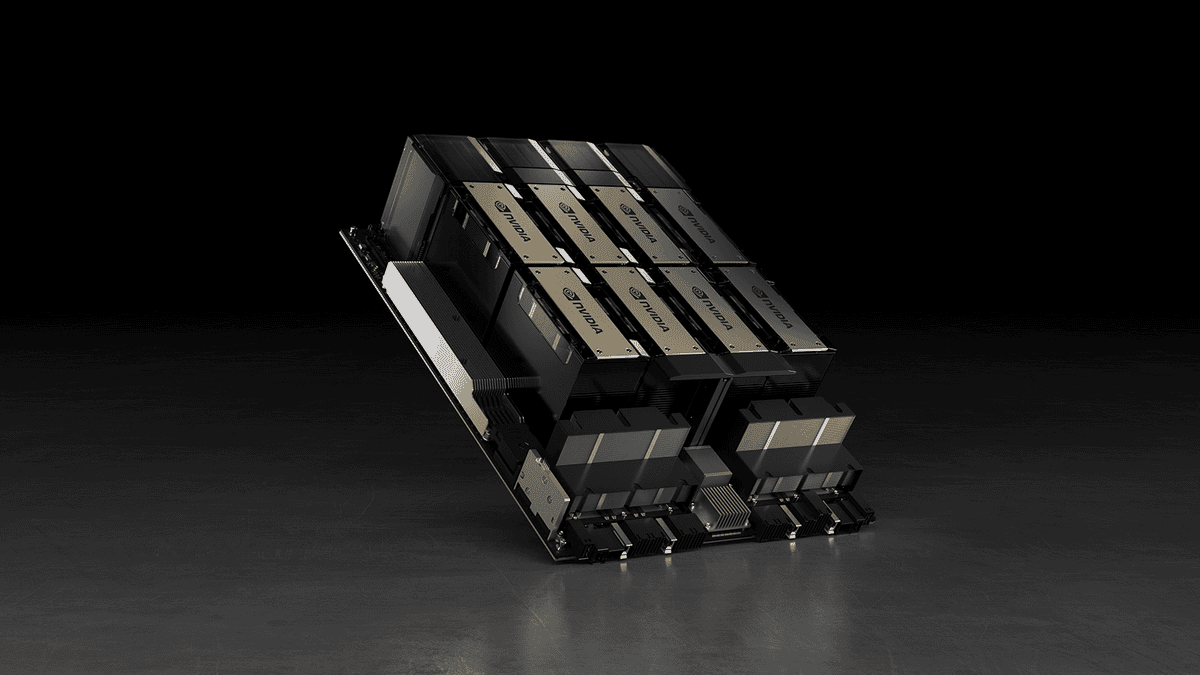Malaysia Clarifies Stance on AI Project Involving Huawei Chips Amid US-China Tech Tensions
5 Sources
5 Sources
[1]
Malaysia government say not involved in local AI project involving Huawei chips
KUALA LUMPUR, May 21 (Reuters) - Malaysia's government did not develop, coordinate or endorse an artificial intelligence project involving a local company and Huawei Technologies, its trade ministry said in a statement on Wednesday. The statement followed media reports that a Malaysian company, Skyvast Corporation, would deploy Huawei chips for the project. The ministry said it wanted "to clarify that the said initiative was not developed, endorsed, or coordinated by the Government of Malaysia, nor does it form part of any Government-to-Government agreement or nationally mandated technology programme." Reporting by Danial Azhar and Ashley Tang; Editing by John Mair Our Standards: The Thomson Reuters Trust Principles., opens new tab Suggested Topics:Asia Pacific
[2]
Malaysia downplays Huawei deal as U.S. checks China's AI reach
Malaysia declared it'll build a first-of-its-kind AI system powered by Huawei Technologies chips, only to distance itself from that statement a day later, underscoring the Asian nation's delicate position in the U.S.-Chinese AI race. Deputy Minister of Communications Teo Nie Ching said in a speech Monday her country would be the first to activate an unspecified class of Huawei "Ascend GPU-powered AI servers at national scale." Malaysia would deploy 3,000 units of Huawei's primary AI offering by 2026, she said in prepared remarks reviewed by Bloomberg News. Chinese startup DeepSeek would also make one of its AI models available to the Southeast Asian country, the official added.
[3]
Malaysia Becomes the First Nation Outside China to Deploy Huawei's Ascend Chips, Potentially Violating US Export Control Policies
Malaysia has stepped up the AI race by launching a strategic AI infrastructure project to create a self-reliant ecosystem, backed by Chinese technology. AI has expanded from Big Tech to now governments moving into the AI hype, and as Jensen said in his Computex keynote, the world is moving towards building AI infrastructure, which will receive a similar significance to power infrastructure. Similarly, according to a report by MCIGroup, it is claimed that the Malaysian government has taken the initiative to "localize" AI developments by hosting servers domestically in the region to ensure data integrity and the country's leading position in the technological world. The special thing about this project is that the data will be stored in Malaysia, it will be managed by Malaysians, and it will be used by Malaysians as well, so this is how we can actually safeguard our AI sovereignty. - Malaysia Now, the interesting part of this initiative is that Malaysia will reportedly become the first nation to employ Huawei's AI chips for its project, and while the government hasn't explicitly stated this, it did say that the country will be the first outside of China to use chips and servers, along with DeepSeek LLMs from China, indirectly indicating that the nation will use Huawei's Ascend accelerators. This potentially means that Malaysia is violating the US export controls, which clearly state that any entity found using Huawei's chips will be penalized, so it is interesting to see how the US administration reacts to it. Malaysia has been known to play the "dual-ball" game since the country has previously been accused of supplying NVIDIA's AI chips to China by leveraging US trade loopholes. It was claimed that individual organizations in the country were exporting AI chips and servers to China, and considering that there are no restrictions on Malaysia for now, they weren't violating anything, until the US discovered the trade loophole. And, now that the nation is using Huawei's chips, they could potentially face more scrutiny by the Trump administration. The use of Huawei's chips outside of China clearly indicates that NVIDIA is facing formidable competition in China and that Huawei could potentially expand its influence beyond its own nation. Given that the company's rack-scale solutions, such as the CloudMatrix 300, are said to rival NVIDIA's Blackwell counterparts, Huawei isn't far away from levelling the competition.
[4]
Malaysia Says Huawei-Linked AI Project Not Government-Backed
KUALA LUMPUR, Malaysia--Malaysia's trade ministry said the government hasn't backed an artificial-intelligence infrastructure project involving China's Huawei Technologies, coming amid renewed U.S.-China tensions over advanced tech. The clarification was issued in response to recent media reports and public statements related to the launch of an AI infrastructure initiative involving Huawei and Malaysian company Skyvast, the Ministry of Investment, Trade and Industry said Wednesday. While the Malaysian government supports building AI-powered infrastructure to enhance public services, any such initiative would need to undergo the "appropriate level of legal, operational, and reputational processes and due diligence," it said in a statement. The initiative was not developed, endorsed, or coordinated by the government, nor is it part of any bilateral agreement, the ministry said. The media reports came after Malaysian Deputy Communications Minister Teo Nie Ching gave a speech Monday to announce the launch of the country's full-stack AI ecosystem. According to a text of the speech, the infrastructure was developed in partnership with Skyvast, Huawei and Chinese semiconductor processing company Leadyo. The speech said "Malaysia becomes the first nation to activate this class of Ascend GPU-powered AI servers at national scale," adding: "A phased rollout of 3,000 Ascend chips by 2026 will form the backbone of Malaysia's national AI grid." Ascend chips are made by Huawei, and have been the subject of friction between China and the U.S. Huawei said in a statement Wednesday that it has not sold any Ascend chips in Malaysia, and that the Malaysian government has not purchased any Ascend chips from the company. Skyvast didn't immediately respond to a request for comment. Last week, the U.S. Commerce Department issued a directive saying that using Huawei's chips anywhere in the world is in breach of U.S. export controls. The language was then amended to say that use of the chips carries risks. China's Commerce Ministry said earlier Wednesday that it "believes that the U.S. is abusing export controls to suppress and contain China, violating international law." In the Wednesday statement, the Malaysia trade ministry said the Southeast Asian country remains committed to complying with all relevant export-control laws and global security standards, while also reiterating its adherence to multilateral trade principles under the World Trade Organization. "Malaysia also reaffirms its sovereign right to formulate its policies in line with national interests," the ministry added.
[5]
Malaysia government not involved in local AI project involving Huawei chips
KUALA LUMPUR (Reuters) -Malaysia's government did not develop, coordinate or endorse an artificial intelligence project involving a local company and Huawei Technologies, its trade ministry said in a statement on Wednesday, backtracking on a previous announcement. The statement followed local media reports on Monday that a Malaysian company, Skyvast Corporation, would deploy Huawei's Ascend chips for the project. The ministry said it wanted "to clarify that the said initiative was not developed, endorsed, or coordinated by the Government of Malaysia, nor does it form part of any Government-to-Government agreement or nationally mandated technology programme." Huawei told Reuters that it has not sold any Ascend chips in Malaysia, and the Malaysian government has not purchased any of those chips from them. Huawei developed the Ascend chips after it was blocked by the U.S. government from receiving advanced semiconductors. The chips have since become an alternative for Chinese firms after Washington moved to further curb sales of high-end chips by top AI chip maker Nvidia to China. The Trade Ministry added that the country remains committed to fully complying with all applicable export control laws, national security directives, and emerging guidance from global regulatory authorities. Skyvast did not immediately respond to a request for comment. (Reporting by Danial Azhar, Ashley Tang, and Brenda Goh; Editing by John Mair and Louise Heavens)
Share
Share
Copy Link
The Malaysian government distances itself from reports of a local AI project using Huawei's Ascend chips, highlighting the delicate balance in US-China tech relations.
Malaysia's Stance on AI Project with Huawei Chips
The Malaysian government has officially distanced itself from reports of an artificial intelligence (AI) project involving Huawei Technologies' chips. The Ministry of Investment, Trade and Industry issued a statement clarifying that the government "did not develop, coordinate or endorse" the AI initiative
1
. This clarification comes in response to media reports and public statements about the launch of an AI infrastructure project involving Huawei and a Malaysian company, Skyvast Corporation4
.
Source: Reuters
Initial Announcement and Backtracking
The controversy began when Malaysia's Deputy Minister of Communications, Teo Nie Ching, reportedly announced in a speech that Malaysia would be the first nation to activate Huawei "Ascend GPU-powered AI servers at national scale"
2
. The plan allegedly involved deploying 3,000 units of Huawei's primary AI offering by 20262
. However, the government quickly backtracked on this announcement, emphasizing that any such initiative would need to undergo "appropriate level of legal, operational, and reputational processes and due diligence"4
.Huawei's Response and US Export Controls
Huawei has stated that it has not sold any Ascend chips in Malaysia, and the Malaysian government has not purchased any Ascend chips from the company
5
. This clarification is particularly significant given recent US export control measures. The US Commerce Department issued a directive stating that using Huawei's chips anywhere in the world could be in breach of US export controls, although this language was later amended to say that use of the chips carries risks4
.Geopolitical Implications
The situation highlights the delicate position Malaysia finds itself in amidst the ongoing US-China tech rivalry. Malaysia has previously been accused of playing a "dual-ball" game, allegedly supplying NVIDIA's AI chips to China by leveraging US trade loopholes
3
. The use of Huawei's chips outside of China could potentially indicate growing competition for NVIDIA in the AI chip market3
.Related Stories
Malaysia's Commitment to Compliance
In response to the controversy, Malaysia's trade ministry has reiterated the country's commitment to complying with all relevant export-control laws and global security standards. The ministry stated, "Malaysia also reaffirms its sovereign right to formulate its policies in line with national interests"
4
. This statement underscores Malaysia's attempt to balance its technological ambitions with international obligations and geopolitical sensitivities.The Future of AI Development in Malaysia
Despite the controversy, Malaysia appears to remain committed to developing its AI capabilities. The government has expressed support for building AI-powered infrastructure to enhance public services
4
. However, the incident highlights the challenges faced by countries seeking to advance their technological capabilities while navigating complex international relations and trade restrictions in the rapidly evolving field of AI.References
Summarized by
Navi
[4]
[5]
Related Stories
Malaysia Implements Trade Permits for U.S. AI Chips Amid Global Export Control Concerns
14 Jul 2025•Policy and Regulation

Malaysia Curbs Data Center Growth, Impacting China's AI Chip Access
12 Sept 2025•Policy and Regulation

U.S. Pressures Malaysia to Tighten Semiconductor Regulations Amid Concerns Over AI Chip Flow to China
24 Mar 2025•Technology

Recent Highlights
1
ByteDance's Seedance 2.0 AI video generator triggers copyright infringement battle with Hollywood
Policy and Regulation

2
Demis Hassabis predicts AGI in 5-8 years, sees new golden era transforming medicine and science
Technology

3
Nvidia and Meta forge massive chip deal as computing power demands reshape AI infrastructure
Technology





